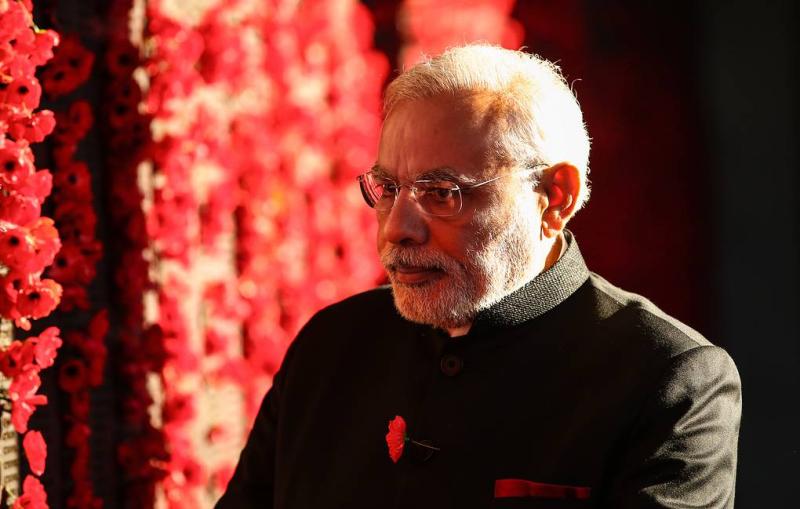
© Mark Nolan/Getty Images/TASS
Indian Prime Minister Narendra Modi has opened the year of New Delhi's G20 presidency by holding the Voice of the Global South online summit engaging over 120 countries of Asia, Africa and Latin America. Mr. Modi has expressed eagerness to implement a new international agenda determined not by industrially developed countries of the so-called "golden billion", but by developing countries claiming world leadership.
Pivot to global growth and development implies that the G20 summit scheduled for September 9-10 this year in New Delhi and the previous one in Indonesia’s Bali will be poles apart. The Indian authorities have announced that the forum will not rely upon anti-Russian narrative, awaiting Russia's active involvement and failing to invite Ukrainian President Vladimir Zelensky. G20 summit host is bound for depoliticization and unwillingness to once again hold a meeting mottoed "For Ukraine, against Russia."
Notably, the Voice of the Global South summit held in India’s capital city on January 11 to 13 was first of the kind to involve independent states that emerged in the second half of the twentieth century following the world colonial system’s collapse largely facilitated by Moscow's foreign policy. Countries of the Afro-Asian and Latin American world referred to as the Global South, came into the spotlight at the dawn of their independence and proclaimed the fight against neocolonialism and neo-imperialism as their primary objective. However, later they split into separate competing and even feuding groups, ceasing to be a single force with shared goals and purposes. Ambitious Indian leader Narendra Modi seeks to encourage the developing world to reinvent its strategy of growth and development.
Interestingly, the Global South summit’s topic formulated as "One voice, one goal" has become a premise to search for a new fellowship. In New Delhi, two out of the ten sessions were held between heads of state and government, and the rest at the ministerial level. Throughout the summit Narendra Modi never mentioned Russia’s operation in Ukraine, which has been forming global agenda over the last 12 months, courtesy of the West.
Modi’s first attempt to make the world community shift to problems of the Global South date back to November last year when taking over G20 chairmanship from Indonesian President Joko Widodo. The final Bali summit session witnessed the Indian leader snatch an opportunity to talk about pressing global issues without regard to the Ukrainian crisis and anti-Russian sanctions.
India has noticeably intensified its international presence in the recent years. This fully applies to its performance within the UN, BRICS (Brazil, Russia, India, China and South Africa), SCO, G20 and other international organizations and associations. Moreover, the country is currently transitioning to the status of a leading world power.
In foreign policy, New Delhi still needs to adhere to strategic autonomy, largely based on non-alignment. 75 years after gaining independence, it has kicked off the Viksit Bharat ("Developed India") mission aimed to achieve a number of national objectives by mid XXI century. It particularly strives to be staunchly sovereign, diplomatically autonomous, economically strong, socially cohesive, militarily powerful, culturally vibrant, forefront of science and technology, pragmatic and influential in international relations.
The last few months saw India's activity manifest itself in a whole number of its initiatives: apart from G20 and SCO chairmanship, New Delhi deems it necessary to reform the UN Security Council (UNSC), expanding it by means of Asian, African and Latin American states. A statement to this effect came from Foreign Minister Subramanyam Jaishankar when speaking at the Security Council’s open debate on New Orientation for Reformed Multilateralism. In his opinion, reforming the UNSC to fit present-day realities will ensure a more equitable representation of developing countries, and the need for change is brought about by the international system’s growing burden mankind has been recently facing.
Official New Delhi soon intends to apply to host the Summer Olympics of 2036, presenting the relevant roadmap at a session of the country’s Olympic Committee in September 2023.
Foreign policy signals coming from India were not lost on Moscow, be it noted. Thus, Russian President Vladimir Putin, who did not attend the G20 summit in Bali, praised India's new role in his New Year's greetings to President Draupadi Murmu and Prime Minister U Narendra Modi. India's presidencies of the SCO and G20 will build multi-dimensional cooperation between our two countries, strengthen stability and safety in Asia and across the globe, the Russian leader stressed.
The Voice of the Global South summit is fully compliant with Moscow's intention to play an increasingly active part in Asia, Africa and Latin America. Currently, Russia’s Foreign Ministry and National Security Council are finalizing work on the new Foreign Policy Concept to define the country's global partners, areas of interest and future goals. The document was driven by major changes in international relations amid the Ukrainian crisis and political upheavals in the Middle East and North Africa. Expected to undergo fundamental changes, the Concept 2023 will read that Russia’s 30-year-long cooperation with the West is irrevocably over.
In this regard, the Concept should be expected to proclaim a line stipulating a new center of power in Eurasia’s geopolitical space, where Russia has a strong presence. Priorities will be likely redirected to the Eurasian Economic Union (EAEU), which embraces the SCO countries, and BRICS member states. Besides, waiving Wester-centrism prompts stepped-up cooperation with the global East and South, as their great many countries are receptive to Moscow's action. They particularly refused to join the US-led anti-Russian coalition or restrictions. Uncomfortable about walking the Western-imposed line, most developing countries are determined to cooperate with Russia across the full range of areas.









